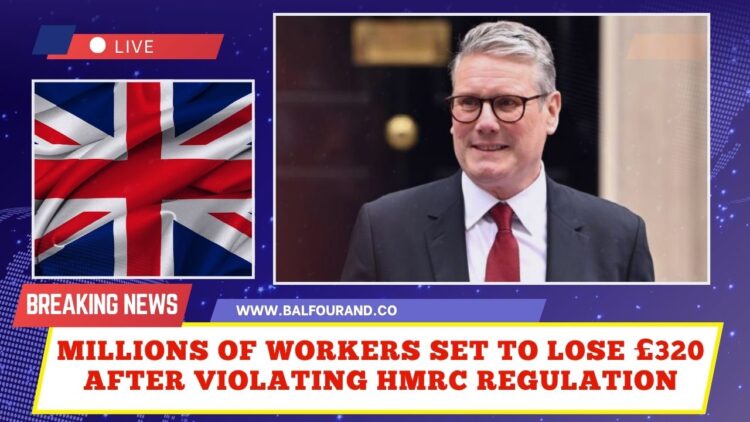Millions of UK workers could see their take-home pay shrink due to frozen income tax and National Insurance thresholds, potentially costing individuals up to £320 annually.
Financial experts warn that extending the current freeze could push more taxpayers into higher tax brackets, despite no rise in wages. Critics have labeled this a “stealth tax” that could disproportionately affect middle-income earners and pensioners.
Income Tax Freeze: What’s Happening?
The Labour government is expected to maintain the freeze on income tax thresholds, a move originally introduced to address fiscal pressures.
When income thresholds remain unchanged while wages rise due to inflation, more of a worker’s income is pushed into higher tax bands—a concept known as fiscal drag.
Projected Financial Impact on Workers
According to analysis by wealth management firm Quilter, a two-year extension of the freeze would result in higher tax burdens for workers across various income levels:
| Annual Salary | Extra Tax in 2028–29 | Extra Tax in 2029–30 |
|---|---|---|
| £30,000 | £106 | £214 |
| £60,000 | £317 | £643 |
| £150,000 | £354 | £718 |
These additional payments combine both income tax and National Insurance contributions.
More Taxpayers Dragged into Higher Brackets
The freeze could mean:
- 2.9 million more people paying the basic rate of income tax.
- Over 2.6 million more individuals pushed into the higher rate bracket.
Such increases highlight the hidden cost of keeping thresholds static in a rising wage economy.
Public and Political Reaction
John O’Connell, chief of the TaxPayers’ Alliance, criticized the approach, stating:
“Successive governments have relied on anti-aspiration policies that penalize success. The UK is now in a fiscal doom loop.”
He urged Chancellor Rachel Reeves to reconsider these policies, warning that they disproportionately affect the middle class and high earners, potentially discouraging economic ambition.
Kemi Badenoch, the Conservative Party leader, also denounced the freeze, pointing out that it would impact struggling pensioners the most.
A Tory Party spokesperson added fuel to the concern by stating:
“The Prime Minister refused to guarantee the lifting of tax threshold freezes and did not deny the possibility of new taxes on retirement or wealth. This suggests a ‘toxic cocktail’ of Labour tax hikes in the upcoming budget.”
The proposed extension of frozen tax thresholds could have a significant financial impact on workers across the UK, with potential losses reaching £320 or more. As more people are pulled into higher tax bands without an actual increase in income, critics are calling for urgent reform.
With the autumn budget approaching, millions of households are bracing for increased tax burdens, and political pressure is mounting for the government to reconsider its fiscal strategies.
FAQs
How does the income tax threshold freeze affect workers?
When thresholds are frozen and wages rise due to inflation, more income becomes taxable at higher rates, reducing take-home pay.
Who will be impacted the most by this freeze?
Middle-income earners, high earners, and pensioners are expected to feel the greatest impact due to higher tax liabilities.
Is this a new tax increase by Labour?
While it’s not a direct rate hike, the freeze on thresholds acts as a stealth tax, increasing government revenue without changing tax rates.
